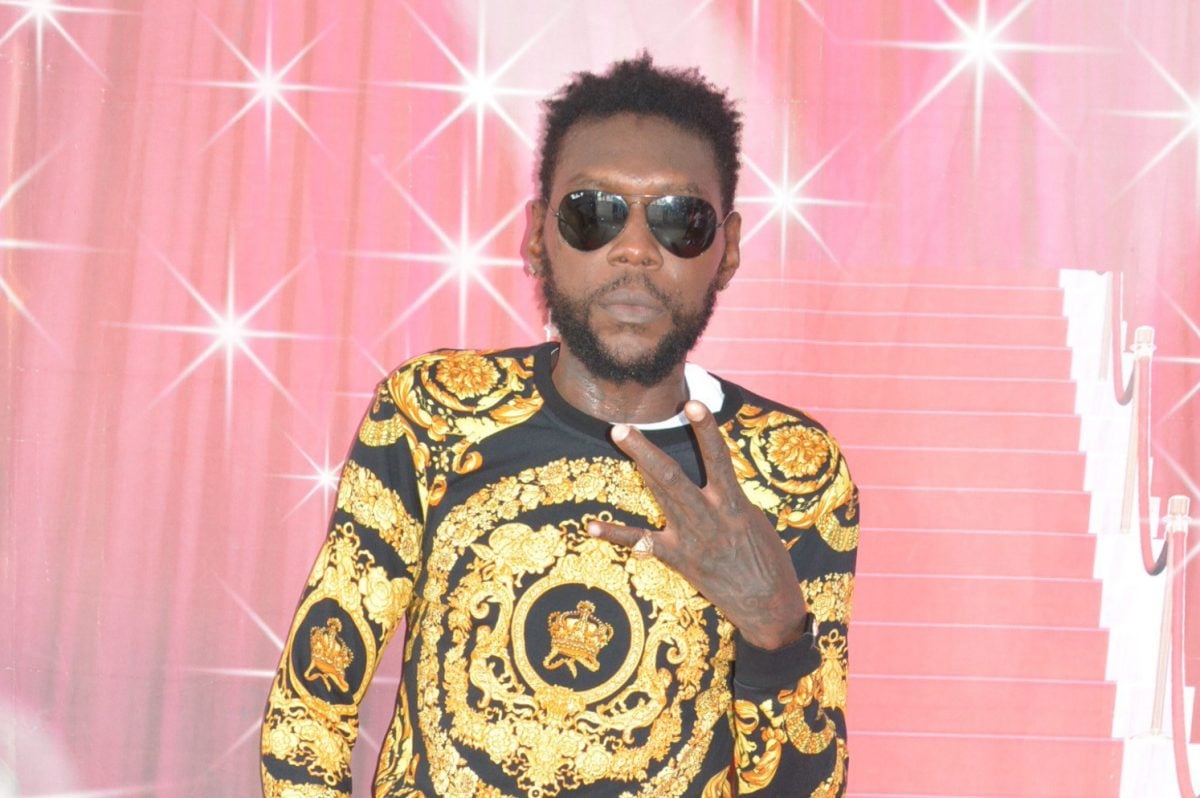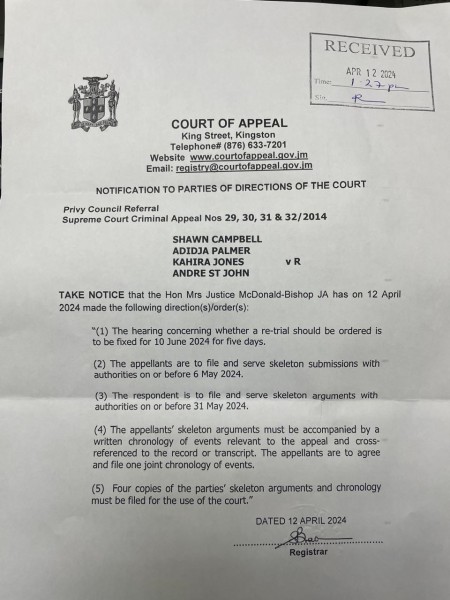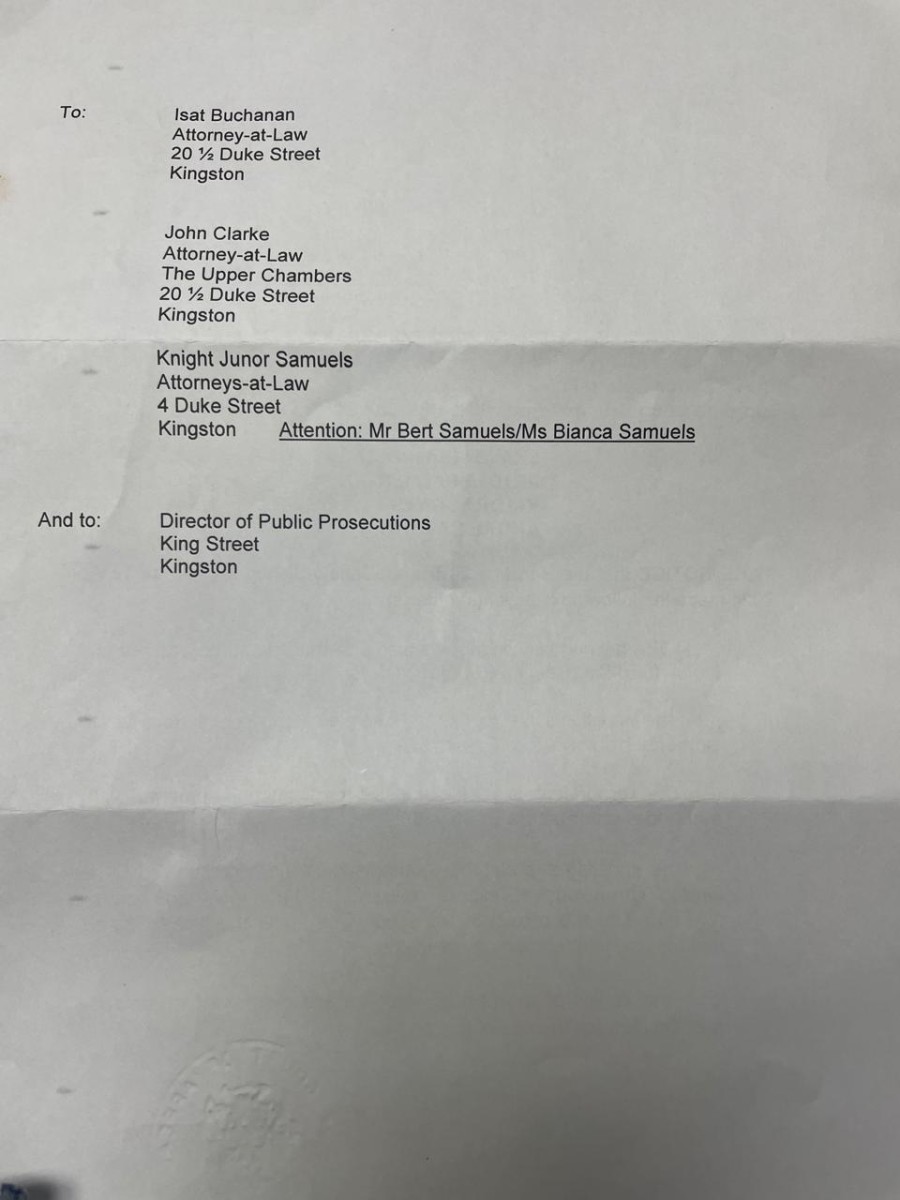Vybz Kartel Retrial: Five-Day Hearing To Begin On June 10

The Jamaica Court of Appeal has scheduled a hearing for June 10 to decide if Dancehall star Vybz Kartel and three others should be released or face a retrial for the murder of Clive ‘Lizard’ Williams.
In a notice issued on Friday, Justice Marva McDonald Bishop set deadlines for the submission of legal arguments: May 6 for Kartel, real name Adidja Palmer, and his co-accused Shawn ‘Storm’ Campbell, Kahira Jones, and Andre ‘Mad Suss’ St John, and May 31 for the prosecution.
The hearing is anticipated to last five days.


In March, the UK-based Privy Council overturned the murder convictions of the four men, and ordered that the Court of Appeal should determine whether there should be a new trial. The UK court cited serious jury management issues for its decision, particularly the continuation of the trial with a ‘tainted’ juror, which compromised the fairness of the trial.
Kartel and his co-accused, who have served over 12 years in prison, have consistently denied involvement in Williams’ death.
In a statement last month, Kartel, who received the harshest sentence, expressed confidence that the Court of Appeal, which previously upheld his conviction, would now do the “right thing.”
“I am also very confident that the court of appeal in Jamaica will do the right thing in the name of equity, fairness, and justice and free us,” Kartel said.
“Some people have expressed their concern to me that a retrial may be ordered but to them, I say (albeit with my limited knowledge of the law) ‘what is there to retry?’” he added.
He continued, “With that being said, the most important point to me is that I am an innocent man. So in reality, I’m not in the least bit worried as I know I will be acquitted and go home to my family whom I have not been together with for over 1[0 years].”
During the original trial, prosecutors had relied on telecommunication evidence — including a text message stating that Williams, whose body was never found, had been “chopped up fine fine” — and the key eyewitness, Lamar “Wee” Chow, who testified that Williams was murdered at Kartel’s home in Havendale, St Andrew on August 16, 2011, after they were summoned there over missing guns.
Kartel’s defense had challenged the admissibility of the telecommunications evidence, arguing the police had obtained it in breach of the Jamaican constitution. They had also questioned Chow’s credibility and cited his inconsistent account of the events, including Chow’s letter to a Public Defender, which stated that he saw Williams after August 16, 2011 and that the police had pressured him to give a conflicting statement.
In a similar case in The Bahamas, Simeon Bain, the so-called “Burger King Killer,” spent 13 years in prison before the Privy Council quashed his conviction and recommended that the Court of Appeal determine whether he should be retried.
The Bahamas court subsequently ordered that Bain be released, citing the passage of 13 years since the crime, the impracticality of a retrial amidst a heavy backlog of cases, and the anticipated “ordeal” a new trial would entail for Bain, the victim’s family, and the public.

